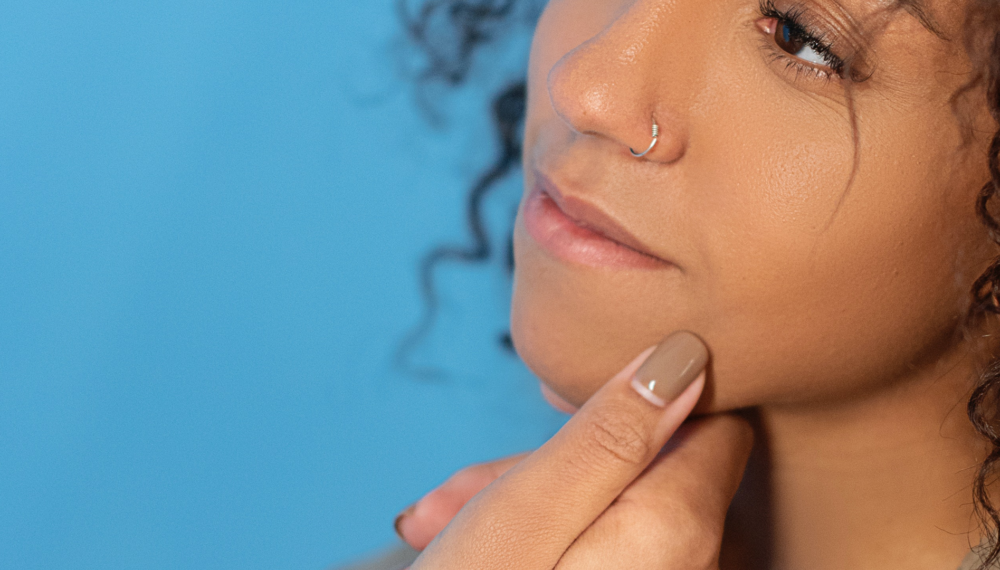Tinnitus and TMJ
It is common for people who have TMJ problems or neck injuries to suffer from tinnitus. Here’s why and what can be done to treat this.
Tinnitus and disorders of the temporo-mandibular joint (TMJ) and neck
Introduction
There is a close relationship between certain problems with the jaw joint (TMJ) and tinnitus. Scientific studies have shown that people with TMJ problems are more likely to suffer from tinnitus. Similarly, people who have sustained an injury to their neck may also suffer from tinnitus.
Some people with either TMJ problems or neck problems are able to alter the intensity of their tinnitus by moving their
mouth, jaw, face and neck. This is called somatosensory tinnitus.
Successful treatment of the underlying problem can also help improve tinnitus symptoms.
What is the TMJ?
The TMJ is a complex joint as it has to allow for side-to-side and front to back movements that take place during chewing. The muscles that make the jaw move are some of the most powerful in the body. This means that quite large forces have to act through the TMJ. As a result, the joint is at risk of damage in the same way as any other weight-bearing joint in the body. TMJ problems can be due to trauma, such as a ‘pulled muscle’ or a dislocation to the fibrous disc that sits in the hinge joint. Other TMJ problems may be due to longer-term problems such as arthritis within the joint. Some people notice that when stressed, they grind their teeth - particularly at night - and this can put pressure on the TMJ.

What are the symptoms of TMJ problems?
The usual symptoms of TMJ problems are:
- pain, which may be felt as earache
- ‘clunking’ of the jaw
- limitation of movement, causing difficulty in opening the mouth.
Other symptoms that may appear are swelling of the joint, headaches, neck pain and tinnitus.
How does the TMJ affect tinnitus?
There are three main theories behind why problems with the TMJ may cause tinnitus, or make it worse.
Firstly, the chewing muscles are near to others that insert into the middle ear. If they are not functioning as they should, this may have an effect on hearing and trigger tinnitus.
Secondly, there can be a direct connection between the ligaments that attach to the jaw and one of the hearing bones that sits in the middle ear. If this ligament becomes overstrained, sprained or inflamed it can impact on tinnitus.
Thirdly, the nerve supply from the TMJ has been shown to have connections with the parts of the brain that are involved with both hearing and the interpretation of sound.
Whatever the cause, the general discomfort associated with TMJ problems can also aggravate any pre-existing tinnitus.
How can TMJ problems be diagnosed?
Your dentist can often diagnose TMJ problems during an examination. If necessary, your dentist will refer you for further tests.
Disorders of the TMJ may be investigated using Magnetic Resonance Imaging (MRI) scans and sometimes by arthroscopy, a small procedure where a tiny camera is inserted into the joint.
What can be done about TMJ problems?
A variety of treatments are available to treat disorders of the TMJ. If your tinnitus is related to your TMJ problem, the tinnitus may improve as the TMJ problems get resolved. Simple measures that can help TMJ problems include: • a change to a soft diet • jaw muscle exercises • the use of anti-inflammatory medicines and painkillers. I n rare cases a specialist dentist, known as an oral and maxillofacial (OMF) surgeon, may be needed to perform surgery on the TMJ. If you grind your teeth or clench your jaw, you may be advised to use a bite-appliance which corrects the way in which the jaw works. This reduces the stresses and loads on the TMJ. When the TMJ is working normally again, you can stop using the bite-appliance.

The neck
Long-term pain and discomfort from conditions in the neck can also aggravate tinnitus in the same way TMJ problems can.
Studies have shown that patients who have suffered an injury to the head and neck region, such as from a car accident, or who have neck pain or stiffness for other reasons, such as arthritis, are more likely to experience tinnitus.
There is some scientific evidence which shows how the nerve endings in the neck make connections in the hearing centres of the brain, explaining how neck problems may affect tinnitus. Quite often the tinnitus associated with neck injuries may be more severe, and can be combined with other symptoms such as headache, depression, and problems with memory and concentration.
Treatment generally depends on the cause, but the results from treating the underlying neck problem are often good. Treatment options can be discussed with your family doctor, who in some cases will recommend simple measures such as the use of painkillers and physiotherapy.
Some people are able to modify their tinnitus by moving their neck. Recently, it has been suggested that TENS (Transcutaneous Electrical Nerve Stimulation) can help too.
Want to learn more
Tinnitus UK have delivered a webinar on the Temporo-Mandibular Joint (TMJ) and the connection with tinnitus, which
is available to purchase. Our webinars include a presentation from a guest speaker and Q&A with the audience.
Please note that all webinars are recordings and you will receive a link to watch this on-demand.
Help and support
Our Tinnitus Support Team can answer your questions on any tinnitus related topics:
- Telephone: 0800 018 0527
- Web chat: – click on the icon
- Email: [email protected]
- Text/SMS: 07537 416841
We also offer a free tinnitus e-learning programme, Take on Tinnitus.
Updated February 2024
To be reviewed February 2027
Author: John Phillips
Version 4.0
Images:
Woman’s jaw: by Mikhail Nilov on Pexels.
Dentist: by Andrea Piacquadio on Pexels.
